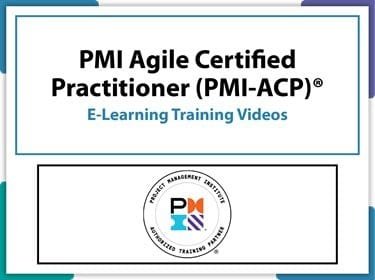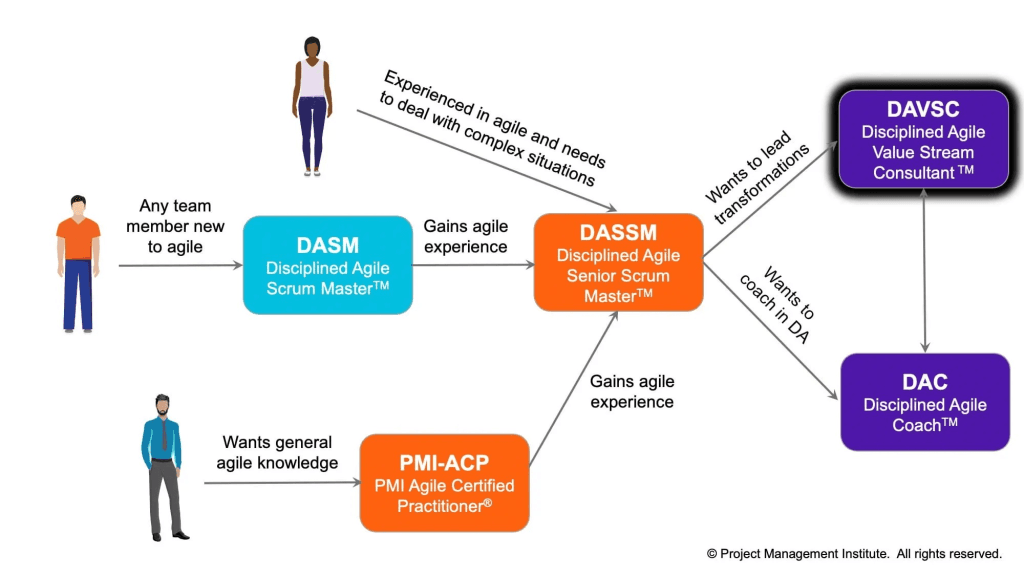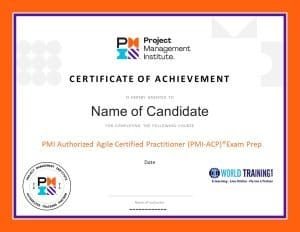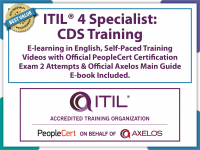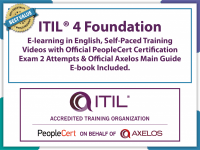Demonstrate Your Agile Team Experience Runs Deep
If you’re experienced using agile approaches, have good collaboration skills, eagerly embrace complexity and thrive on rapid response times, then your talents are in demand.
From the people who brought you the PMP®, the PMI Agile Certified Practitioner (PMI-ACP) formally recognizes your knowledge of agile principles and your skill with agile techniques. Show your peers, employers, and stakeholders that your agile knowledge runs deep.
PMI-ACP certification was created by agilists for agilists. Organizations that are highly agile and responsive to market dynamics complete more of their projects successfully than their slower-moving counterparts—75 percent versus 56 percent—as shown in our 2015 Pulse of the Profession® report.
The PMI-ACP spans many approaches to agile such as Scrum, Kanban, Lean, extreme programming (XP) and test-driven development (TDD.) So it will increase your versatility, wherever your projects may take you.
Who Should Apply?
If you work on agile teams or if your organization is adopting agile practices, the PMI-ACP is a good choice for you. The PMI-ACP is evidence of your real-world, hands-on experience and skill as part of an agile team.
Gain and Maintain Your PMI-ACP
- The certification exam has 120 multiple-choice questions and you have three hours to complete it.
- To maintain your PMI-ACP, you must earn 30 professional development units (PDUs) in agile topics every three years.
Prerequisites
- Secondary degree
- 21 contact hours of training in agile practices
- 12 months of general project experience within the last 5 years. A current PMP® or PgMP® will satisfy this requirement but is not required to apply for the PMI-ACP.
- 8 months of agile project experience within the last 3 years
Domain and Tasks
- Domain I. Agile Principles and Mindset (9 tasks)
Explore, embrace, and apply agile principles and mindset within the context of the project
team and organization. - Domain II. Value-Driven Delivery (4 sub-domains, 14 tasks)
Deliver valuable results by producing high-value increments for review, early and often,
based on stakeholder priorities. Have the stakeholders provide feedback on these increments,
and use this feedback to prioritize and improve future increments. - Domain III. Stakeholder Engagement (3 sub-domains, 9 tasks)
Engage current and future interested parties by building a trusting environment that aligns
their needs and expectations and balances their requests with an understanding of the
cost/effort involved. Promote participation and collaboration throughout the project life
cycle and provide the tools for effective and informed decision-making. - Domain IV. Team Performance (3 sub-domains, 9 tasks)
Create an environment of trust, learning, collaboration, and conflict resolution that promotes team self-organization enhances relationships among team members and cultivates a culture of high performance. - Domain V. Adaptive Planning (3 sub-domains, 10 tasks)
Produce and maintain an evolving plan, from initiation to closure, based on goals, values,
risks, constraints, stakeholder feedback, and review findings. - Domain VI. Problem Detection and Resolution (5 tasks)
Continuously identify problems, impediments, and risks; prioritize and resolve in a timely
manner; monitor and communicate the problem resolution status; and implement process
improvements to prevent them from occurring again. - Domain VII. Continuous Improvement (Product, Process, People) (6 tasks)
Continuously improve the quality, effectiveness, and value of the product, the process, and
the team -
** The above experience requirements for the PMI certification application are not applicable if you want to self-study via e-learning or live online for knowledge improvement, CPD, PDU achievement, or professional development.
Sample Certificate:

